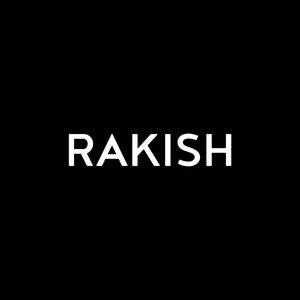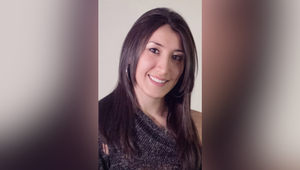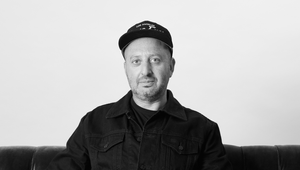
‘Not a Gun’ Director Reflects on Campaign’s Sad Relevance Five Months Since its Launch
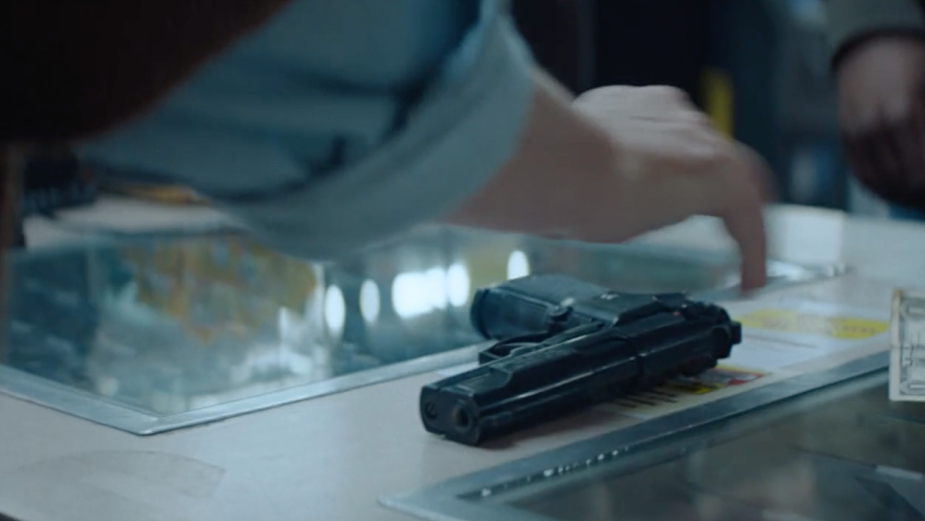
In February of this year, Goodby Silverstein & Partners launched a campaign for Courageous Conversation Global Foundation (CCGF). The aim of the campaign was to highlight the fact that Black people in the US are three times more likely to be killed by police and 50% more likely to be unarmed when they are killed. This campaign was conceived and launched before the death of George Floyd and ongoing, global Black Lives Matter demonstrations that have since happened. The campaign is sadly as relevant today as it was upon launch.
At the centre of that campaign was a striking film in which a black man orders a candy bar, just like his white counterparts, but instead of being handed candy, he’s handed a gun. It was directed by Rakish director Kevin Foley.
In light of recent events and in a bid to bring more exposure to the campaign and the work of the CCGF, we spoke with Kevin.
Q> How did you get involved with Courageous Conversation Global Foundation and Goodby, Silverstein & Partners for the "Not A Gun" campaign?
Kevin> The board came in from Goodby early last summer via creative directors Anthony O'Neill and Rony Castor. The premise was incredibly bold and grabbed me immediately: ‘What if holding a candy bar could get you killed?’. The script originated from Anthony and Rony's personal experience growing up Black in America, so to me, the film had to be grounded in their truth. Their insights and understanding of this psyche and the innate fear Black America lives with every day made the film what it is. They had a great script but wanted a director's input on a few key creative points. We felt that we could keep the audience off-balance if we made them feel something is wrong, rather than showing them. This allowed us to collaborate on what could be the most engaging, cinematic ending.
Q> What drives you creatively? What do you look for in projects you choose to work on?
Kevin> For me, it's always been truth. I've started to work across genres, originating in documentary, but evolving into anthemic visual storytelling and no matter the project or style, I believe the truth is what will always stand apart. And to be clear, that truth comes in many forms. It can be an answer to a question or the simplest action within a scene but, it's my job to find out what it is and how it needs to be represented. I actually get a little frustrated with visual gimmicks and camera trickery that paint over depth. I look for projects that want honesty, no matter the genre.
Q> The Not A Gun spot is incredibly powerful, can you walk us through some of the creative process and choices you made?
Kevin> The creative process was very fluid from the start because there were a couple of key creative decisions we had to make before we made the film. 1) How do we represent the transition between the candy bar and the gun? It was something that we went back and forth on, and rightly so. It's the pivotal moment in the film and the biggest tonal shift. A real WTF moment that we wanted to intrigue and concern the viewer. It's the most important shot in the film from a narrative and payoff standpoint and I'm glad we landed where we did. 2) When Mike Gioulakis joined the team as the director of photography, we sat down before the tech and drilled down on why performance and tone were the critical elements of the film's honesty. As a result, we didn't want the aesthetic to be overly technical or polished so the approach from the beginning was 100% based on realism. No gimmicks. The camera had to feel invisible. We pretty much made the decision right then to shoot the entire film with a natural, handheld aesthetic. You really feel this as our hero leaves the store, we push the tension and claustrophobia through tighter focal lengths, rawer by the second. And in the final scene, you only catch a piece of the bar. This moment is intended to make you think, but it's clear - it was never a gun. Implicit bias is deadly.
Q> Unfortunately, the campaign is just as relevant in today's political climate as it was when you made it last year, how do you feel it adds to the larger conversation now?
Kevin> When we shot this film a year ago, we just wanted to be advocates of change. Not just to raise awareness or empathy but to create a film that would actually drive real policy change. While I'm really proud of the film, I wish we never had to make it. There's another part of me that's disgusted that it's so viscerally relevant. But that was always the point – to make something that catches viewers' attention and drives them to sign the petition. I'm hopeful that the film's extra relevance, today, inspires even more empathy and has an even wider reach.
Q> Has your perspective on the spot shifted at all given the events of the last few months?
Kevin> Looking back, the biggest debate we had throughout production was how we handled the role of the police officer. Do we make the cop a central figure and give him a greater physical presence in the film vs. keeping him in the shadows? We obviously opted for the latter approach. The other back-and-forth we had was the ending. Does the film climax with a physical altercation or worse? Or do we leave it ambiguous, as a cliffhanger and let the audience do the math? Honestly, I don't think it would have made for a more powerful film if we'd made different decisions. It was impossible then and now for this NOT to be a politically charged spot but that was never the intent – it was to make people see a very human side to this issue. Would it be more controversial if we made different decisions? Of course. But would it be as effective? I honestly don't think it would have. I think the ambiguity helps with that and inspires critical thought, at least that's what the intention was.
Q> Any extra thoughts regarding CCGF's petition and initiative for us?
Kevin> Not enough people know about it. Please watch the film and sign the petition. What Courageous Conversations is trying to achieve is exactly what the U.S. needs right now; re-education and reform within the police force.
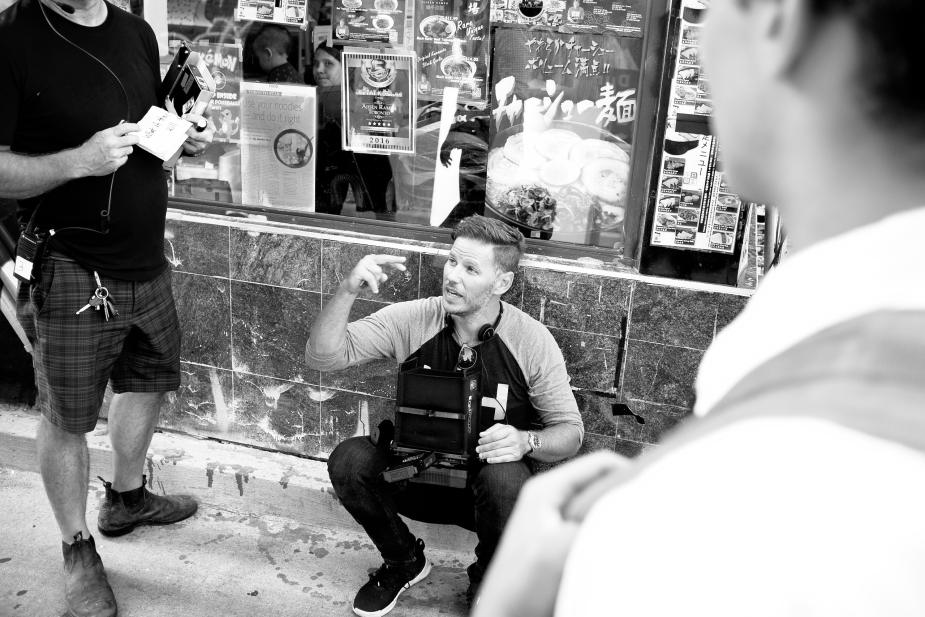
Kevin
Q> How did you start out as a director?
Kevin> Sports and an internship at NBC. There, I was exposed to the world of sports broadcasting as a producer, then over time, directing short and long-form documentaries. It was an Emmy nomination for one of my shorts that introduced me to the world of commercials and here we are.
Q> What led you to Rakish?
Kevin> Intimacy and trust. I had previously known and worked with the EPs, Brad and Preston, for years. When they opened Rakish, I knew it's where I wanted to be.
Q> How have you been keeping busy in isolation?
Kevin> Like all the parents out there, just trying to survive homeschooling! I have a 10- and seven-year old and with my wife hosting her show ET Canada from home, I'm running the house in the mornings. (Side note – teachers should be paid more.) In the afternoons, I've been working on a short film I shot with Tiger Woods last February. The creative process to me is incredibly personal and collaborative, especially so on a 10-minute film, so working remotely has been a unique, time-consuming experience.
Q> Are there any projects on the horizon that you're excited to work on now that the industry might slowly be starting up again?
Kevin> I shot a couple of big campaigns last year that were shelved due to Covid-19, which I've got my fingers crossed will see the light of day. The one I'm really stoked about finishing and getting out there is the global campaign we shot for the 2020 Tokyo Olympics. Five months on the road, incredible locations, shooting the best athletes in the world, co-directing with my friend Mark Zibert - it was an absolute dream job.
Q> Is there anything about the ad industry that you hope to see change moving forward?
Kevin> I'd love to see more bold, unapologetic stories, in the vein of Not A Gun or a film I directed for UNICEF called ‘First Day Fears’. People-driven, human-interest stories that point viewers in the direction of humanity-first.







